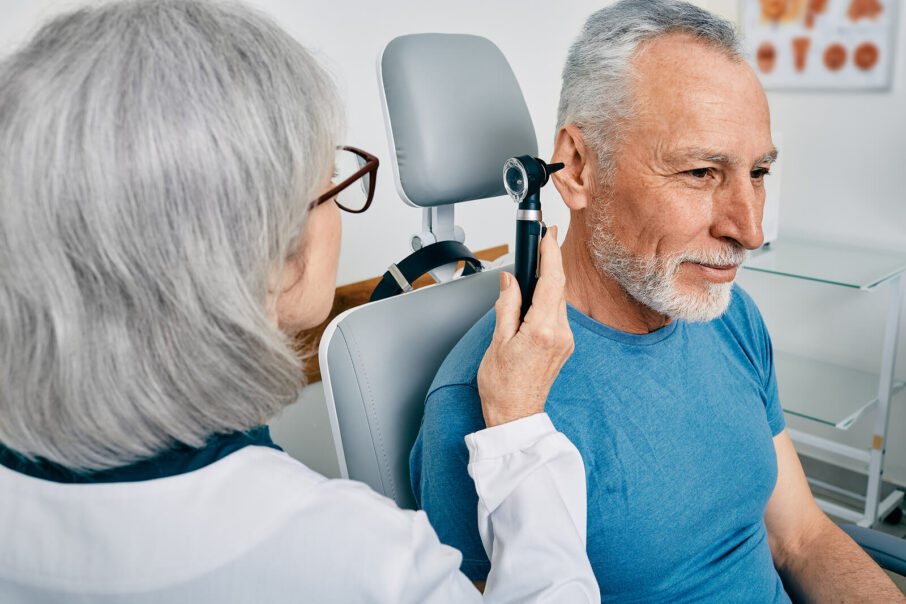Diabetes is a disease that causes the body to either not produce enough insulin or use it effectively. Over time, high blood sugar levels can cause damage to the blood vessels and nerves in the body. One of the areas where this damage can occur is in the inner ear. Studies have shown that people with diabetes are more likely to develop hearing loss. The risk of hearing loss increases as diabetes becomes more severe.
Diabetes is a disease that causes the body to either not produce enough insulin or use it effectively. Insulin is a hormone that helps the body use glucose for energy. When you have diabetes, your body does not produce enough insulin, or does not use it properly. As a result, glucose builds up in your blood instead of being converted into energy by cells throughout the body.
Effects of Diabetes
Long-term diabetes can cause damage to the blood vessels, nerves and other parts of the body. This can lead to complications such as:
- Nerve damage that results in tingling sensations or numbness in your hands and feet.
- Blindness caused by retinopathy (damage to the retina).
- Kidney disease, which may lead to kidney failure if not treated quickly enough.
Diabetes also increases your risk of developing heart disease or stroke, both of which can affect how you hear sounds.
Can diabetes lead to hearing loss?
The inner ear is responsible for hearing, and it contains the cochlea, which converts sound waves into electrical signals. The brain then interprets these signals as sound. Damage to the inner ear (known as sensorineural hearing loss) can lead to hearing loss.
Diabetes is one of many conditions that cause damage to this area of the body and can sometimes lead to a loss in your ability to hear sounds. Diabetes can affect both blood glucose levels and nerve function, which may contribute to nerve damage that potentially leads to hearing loss. In some cases, diabetes may also cause a buildup of fluid in the ears (also known as otitis media), which puts pressure on your eardrum and affects how well you are able to hear sounds coming from inside or outside your body
A study by the American Academy of Otolaryngology published in the American Journal of Medicine found that people with diabetes are more likely to develop hearing loss than those without the disease. Diabetes is a risk factor for all types of nerve damage, including nerve damage in the ears. This can lead to hearing loss because nerves transmit sound waves from your eardrum through your ear canal and into your inner ear where they are converted into electrical signals that travel to your brain. If these nerves are damaged or destroyed, they cannot send these signals properly, which may result in hearing loss.
Diabetes can also cause kidney failure which affects your ability to maintain healthy blood pressure levels and regulate fluids throughout your body, including around your cochlea (the part of our ears responsible for hearing). These factors can lead to reduced blood supply or fluid buildup around this sensitive organ—which may also contribute towards developing some degree of hearing loss over time!
Protect your ears
You can’t fix hearing loss, but you can protect your ears by following these tips:
- Keep your blood sugar as close as possible to your goal level.
- Every year, get your hearing checked.
- Avoid other things that can cause hearing loss, like loud noises.
- Ask your doctor if any of the medicines you take can hurt your hearing and if there are any other options.
- When you first find out you have diabetes and every year after that, you should have your hearing checked by an audiologist.
Losing your hearing can be frustrating for you and your family, and it can also make it hard for you to meet new people. Keeping your blood sugar in the target range is important for many reasons, including protecting your hearing. Plus, while you do it, you’ll feel better and have more energy.
In honor of American Diabetes Month, get your hearing tested with us!
You can avoid hearing loss by getting your blood sugar tested regularly and treating any signs of diabetes as soon as possible. If you have diabetes, talk to your doctor about ways to manage it so that you can prevent further damage to your ears and other parts of your body.
In honor of American Diabetes Month, book a hearing test today! Our licensed technicians will test both your hearing and your balance, and suggest the best course of action.


